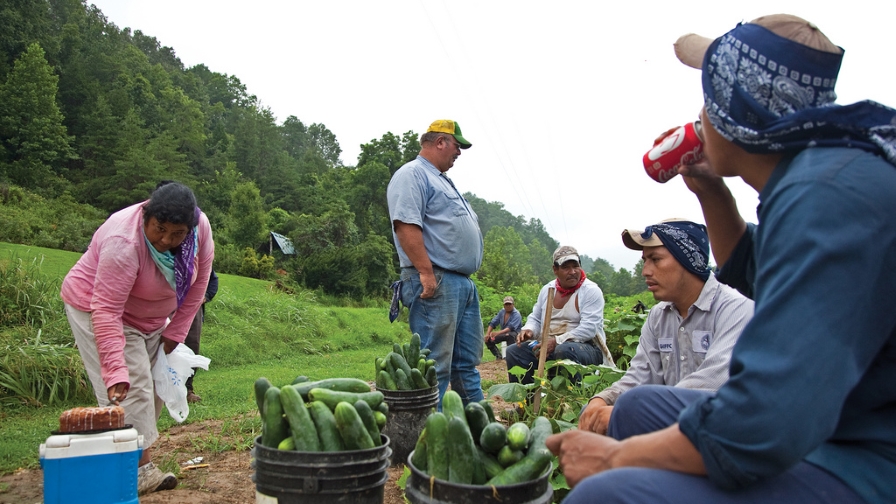New York Labor Law: What’s Behind the Temporary Restraining Order
 A federal judge put a temporary halt to parts of a new farm labor bill last week. Currently, relatives outside of the immediate family and salaried managers and supervisors are considered farm laborers. For the next few weeks, the new labor law ensuring overtime pay and other rights for these groups is on hold.
A federal judge put a temporary halt to parts of a new farm labor bill last week. Currently, relatives outside of the immediate family and salaried managers and supervisors are considered farm laborers. For the next few weeks, the new labor law ensuring overtime pay and other rights for these groups is on hold.
This restraining order was a result of an appeal from New York State Vegetable Growers Association (NYSVGA) and Northeast Dairy Producers Association (NEDPA), which pointed out vaguely worded portions of the new law would create problems.
“They ended up with only two types of people on a farm: family members and farm laborers,” says Brian Reeves, President of NYSVGA.
The law, which aims to give farm workers the right to unionize and to earn overtime pay, oversimplified who qualifies as a farm laborer, Reeves says. At first glance, that isn’t much of a problem. But these broad definitions make enforcing the new rules all but impossible.
Here are the main issues that led Federal Court Judge Lawrence J. Vilardo to issue the temporary restraining order on parts of the law:
Farm Laborer Definition
As the law stands, all who work on the farm who are not immediate family to the owner are farm laborers.
Here’s how it is stated in the law:
“The term ’employee’ shall also include farm laborers. ‘Farm laborers’ shall mean any individual engaged or permitted by an employer to work on a farm, except the parent, spouse, child, or other member of the employer’s immediate family.”
So a farm laborer includes farm managers, crew supervisors, and food safety directors.
This creates a Catch 22. If a union forms on an operation, and all non family members belong, that means managers who determine the fate of workers would be in the meetings with their employees.
A federal law prohibits adopting laws where this type of conflict of interest exists.
Another issue with the current definition of farm laborer is that no salaried positions outside of the family can exist. So supervisors and some family members (see the next section on who is considered family) would be subject to hourly wage and overtime laws.
Family Definition
The current law recognizes only immediate family members as “family.” Cousins, aunts, and uncles do not qualify.
The family definition relies on who is an owner. The law assumes a single owner, as it says stakeholder’s immediate families who work on the farm would be considered farm laborers.
Reeves offered this example of how this limited definition of family could be a problem:
Many vegetable growers have a succession plan in place where younger generations have a small stake in the company that slowly grows over years until they have a majority stake. And in many cases, the younger generation is made up of cousins who have a majority stake only when they combine their stock, not individually. The law as it stands would consider the next generation of owners farm laborers.
What’s Next
This restraining order is in place for only a few weeks until the next hearing on January 24.
In the meantime, other key portions of the law, including a wage increase and a mandatory day of rest, are in effect and are not included in the restraining order.
If the ruling decides to enforce the law as it stands for extended family members (including cousins) and supervisors, then farmers will owe all back overtime wages (earned since January 1).
Here’s how that portion of the restraining order read:
For the duration of the temporary restraining order: (a) To the extent the Act requires agricultural employers, as defined in New York Labor Law § 701(2)(b), to treat as farm laborers under New York Labor Law § 701(3)(c) any individual related to the employer to the third degree of consanguinity or affinity; any foreperson in charge; or any bona fide executive, administrator, professional, or supervisor (“Family and Supervisory Employees”), the defendants [NY Governor, Attorney General, and Commissioner of Labor] are temporarily enjoined from enforcing the Act in such manner.”









